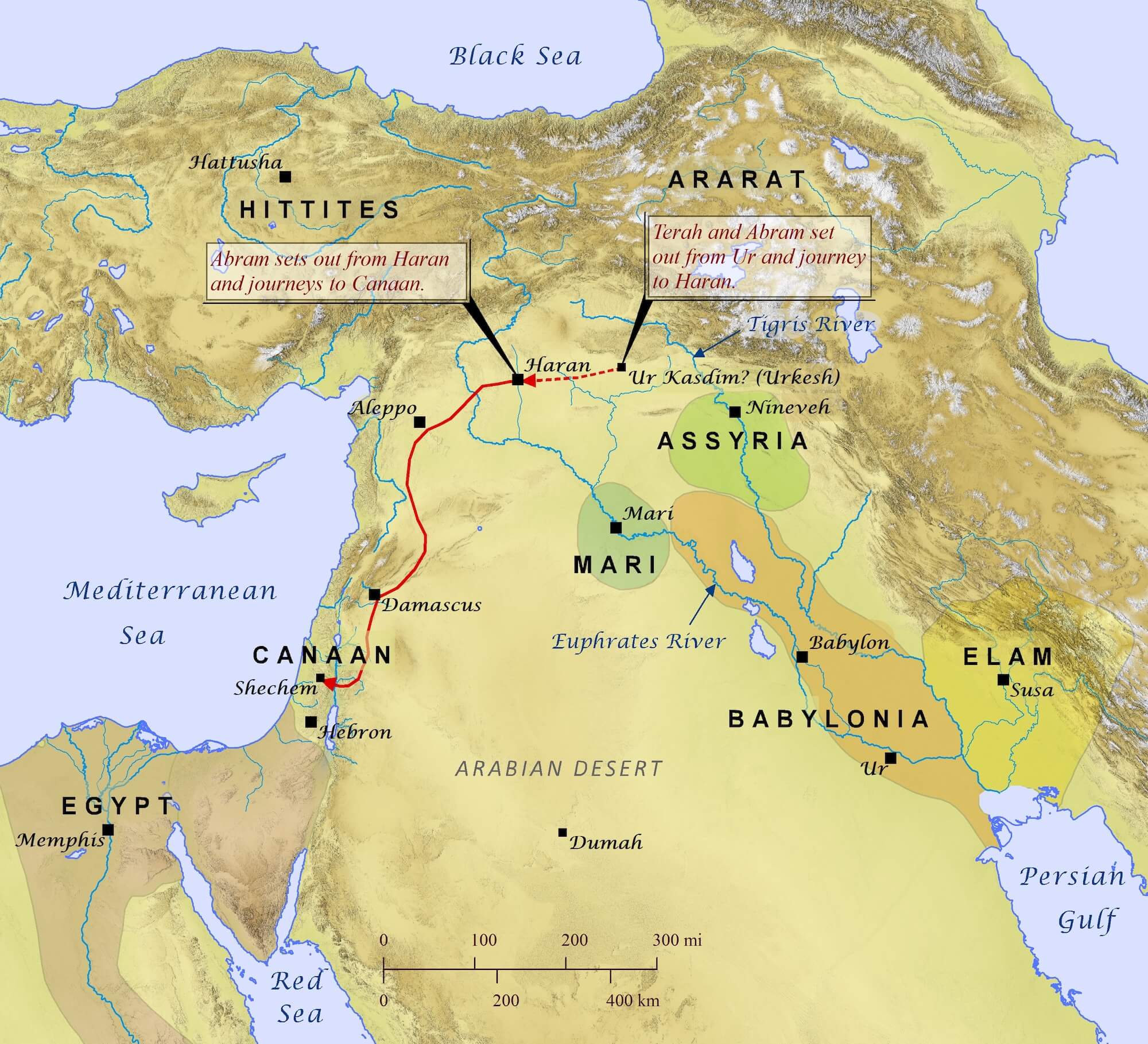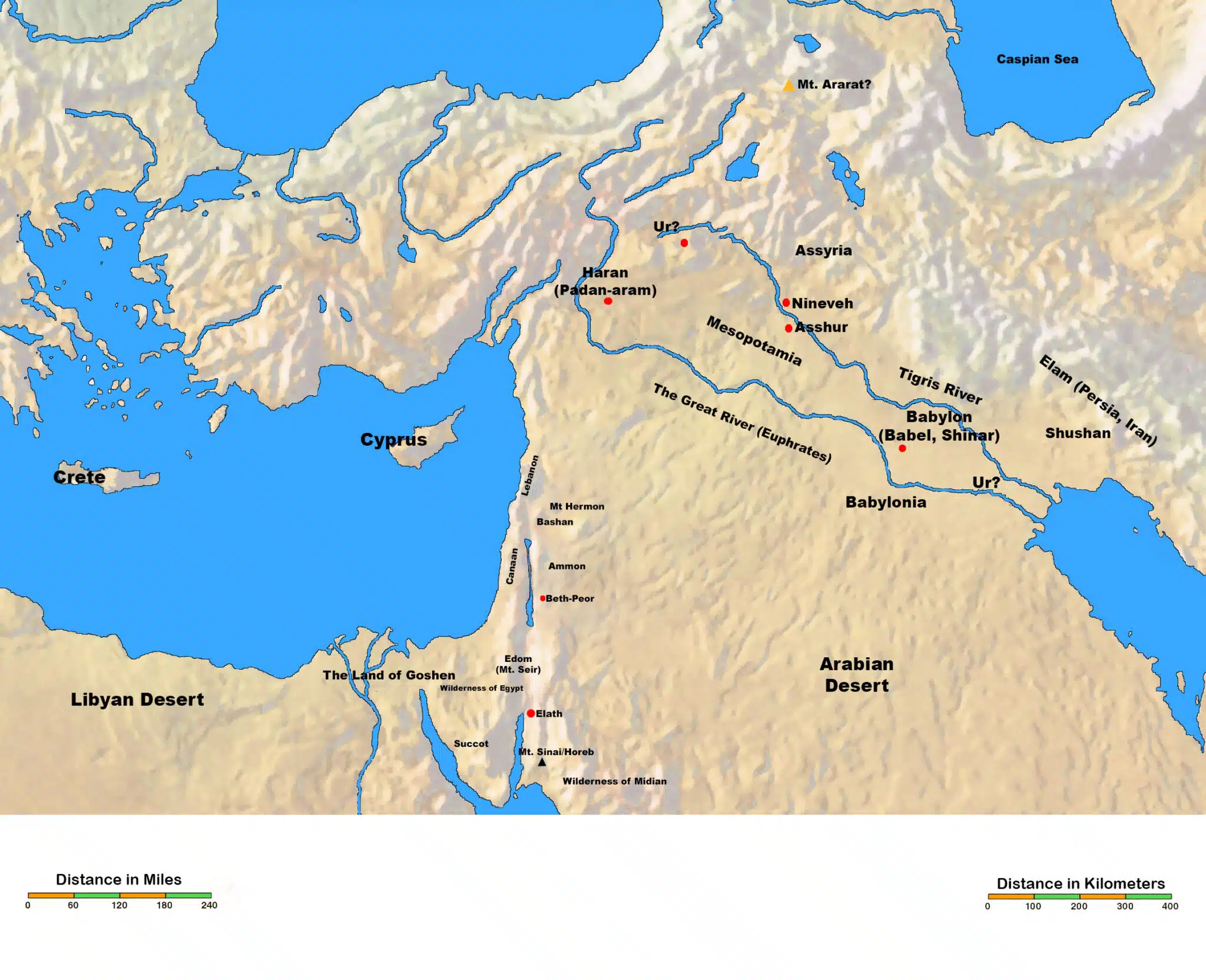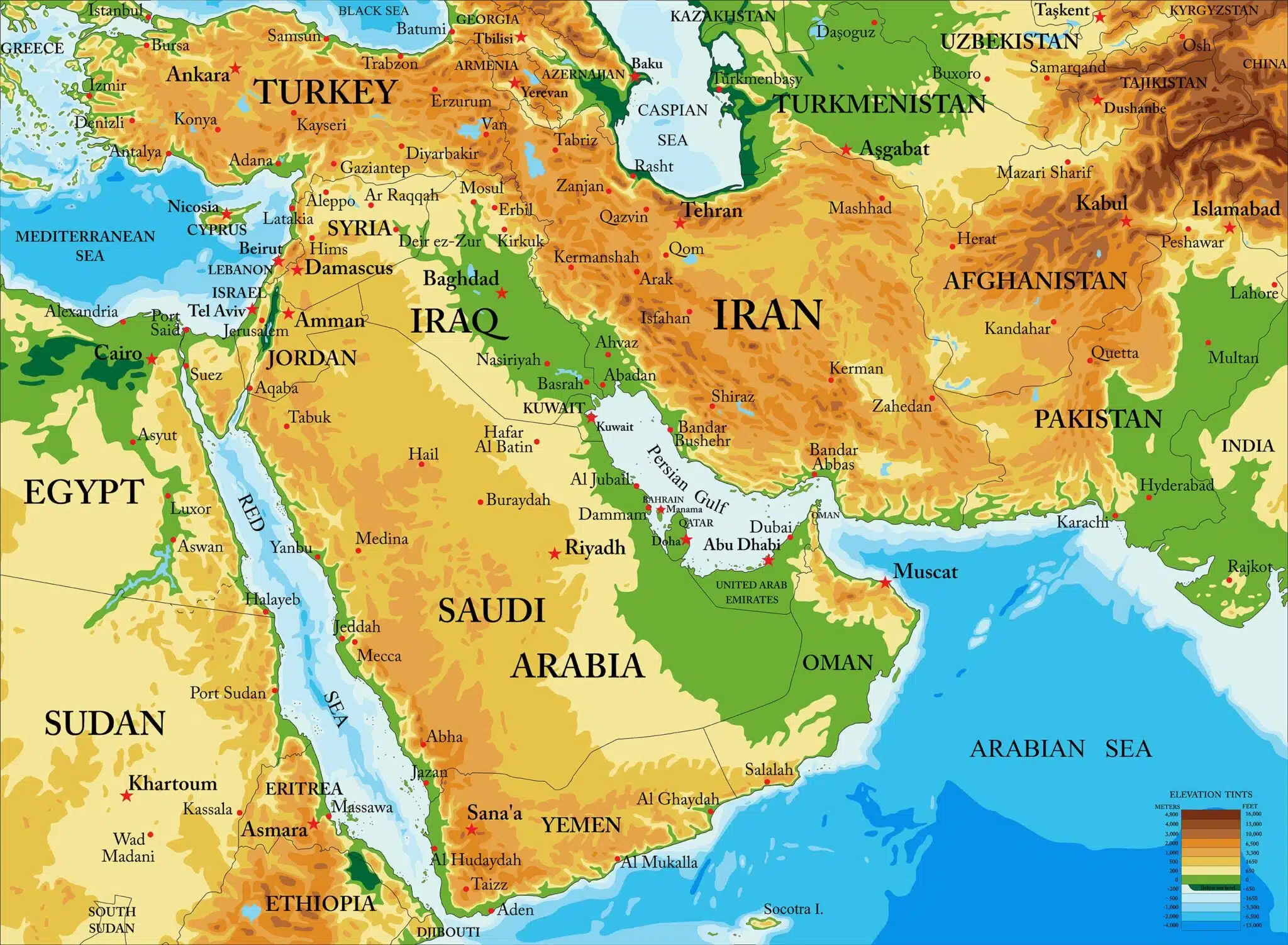God begins a covenant with Abram.
Having answered Abram’s question about descendants, the dialogue now turns to the promise of the land. I am the Lord who brought you out of Ur of the Chaldeans, to give you this land to possess it. God declares His authority and confirms the call of Abram with the subsequent redemption of Israel to be possessed by Abraham’s descendants. Neither the departure of Terah’s household from Ur nor the migration of Abrams household to Canaan was accidental. Both were the result of God’s intervention and guidance (Acts 7:2-4). God had brought Abram out of Ur to give the land of Canaan to his descendants in the first place. God was reminding Abram that He was the one in charge and responsible for the promises and covenant. Just as God had faithfully brought Abram to Canaan, He will also satisfy the promise of offspring.
Abram believed God’s promise of a son, but he desired a confirmation of the promise of the land; he asked how may I know that I will possess it? The New Testament tells us that if we want something to ask for it. James 1:5 encourages us to ask for wisdom, and James 4:2 says we don’t have because we don’t ask. That was not a problem for Abram. Abram believed, but when the opportunity came, he asked. In answer to Abram’s question, God by grace made a binding covenant with Abram that guaranteed the fulfillment of God’s promises to him.
Animals were a very important part of the covenant ceremony. God instructed Abram to bring a three year old heifer, and a three year old female goat, and a three year old ram, and a turtledove, and a young pigeon.
Biblical Text
7 And He said to him, “I am the Lord who brought you out of Ur of the Chaldeans, to give you this land to possess it.” 8 He said, “O Lord God, how may I know that I will possess it?” 9 So He said to him, “Bring Me a three year old heifer, and a three year old female goat, and a three year old ram, and a turtledove, and a young pigeon.”
Check out our other commentaries:
-
Matthew 24:15-20 meaning
Jesus begins His answer to the disciples’ second question about the sign of His coming. He refers them to the prophecy from the Book of Daniel...... -
Matthew 17:19-21 meaning
The disciples approach Jesus to ask Him about why there were unable to cast the demon out of the man’s son. Jesus tells them that...... -
Joel 2:18-20 meaning
In response to Judah’s genuine repentance, the LORD will have mercy on them and restore their agricultural products, which the locust plague devoured. The text...... -
Romans 12:17-19 meaning
We aren’t God. Our role is not to right all wrongs, especially personal wrongs. If we seek to pay people back for how they’ve treated...... -
Genesis 10:9-14 meaning
Nimrod was a mighty hunter. He built the kingdom of Babel and in Assyria, he built the city of Nineveh. Mizraim had seven sons. ......





